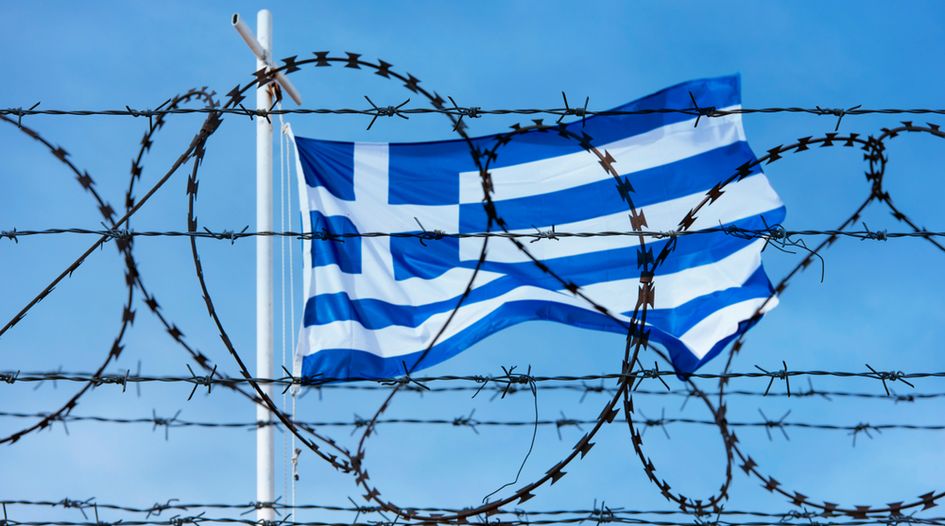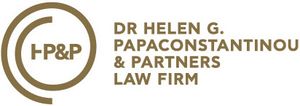Greece: Collaboration and enforcement actions needed to handle surge in digital and offline fakes

This is an Insight article, written by a selected partner as part of WTR's co-published content. Read more on Insight
Legal framework
The most important pieces of legislation applicable in Greece for enforcement against counterfeiting include:
- the Trademark Law 4679/2020, which implements the EU Trademark Directive (2015/2436/EaC) and the EU enforcement of the IPR Directive (2004/48/EC);
- Law 2121/1993 on copyright, related rights and cultural issues, as amended;
- Law 2417/1996 on the ratification of the Hague Agreement concerning the international deposit of industrial designs, Presidential Decree 259/1997 on implementing the provisions of the Agreement and Presidential Decree 161/2002 implementing the EU Designs Directive (98/71/EC) and the EU Community Designs Regulation (6/2002);
- Law 1733/1987 on technology transfer, inventions and technological innovation, as amended, and Law 3966/2011, implementing the IPR Directive (2004/48/EC);
- the Unfair Competition Law 146/1914;
- the Criminal Code;
- the Code of Criminal Procedure;
- EU Regulation 608/2013 of the European Parliament and of the Council concerning customs enforcement of IP rights and the Commission implementing EU Regulation 1352/2013, as amended by EU Regulations 582/2018 and 1209/2020 (Regulation 608/2013);
- Law 4712/2020 (as amended and in force by Law 4753/2020), which amends Law 3377/2005 on the restructuring of trade, sets out rules on the establishment and operation of an inter-agency market control unit and regulates the seizure and destruction of pirated or counterfeit goods in the market; and
- Law 5099/2024 on the adoption of measures to implement the Regulation (EU) 2022/2065 of the European Parliament and of the Council of 19 October 2022 on a Single Market for Digital Services and amending Directive 2000/31/ EC (the Digital Services Act).
National context
Greece is a significant hub for the illicit trade of counterfeit and pirated goods, primarily due to its strategic geographical location. As one of the major EU countries serving as a transit point for goods entering mainland Europe, and with its extended tourist season attracting a substantial influx of visitors, the country has maintained its allure for such activities. From the bustling streets of Athens and Thessaloniki to the popular and highly visited islands, the shadow of counterfeit goods looms large, infiltrating every corner of consumer life.
In recent years, there has been a notable increase in counterfeiting, driven by the rapid expansion of the digital world during the COVID-19 pandemic, resulting in a complex network of illicit trade deeply rooted within Greek society. Whether luxury handbags being sold in tourist markets or fake cosmetics and pharmaceuticals being sold online, counterfeit goods have become widespread, enticing unsuspecting consumers with the promise of authenticity at discounted prices. Additionally, significant quantities of counterfeit spirits and tobacco products are finding their way into entertainment venues.
However, beneath the surface of seemingly harmless transactions lie numerous consequences. Legitimate businesses endure substantial financial losses as counterfeit products undermine their market share and tarnish their reputation. Furthermore, the proliferation of counterfeit goods poses serious risks to public health and safety, as counterfeit pharmaceuticals, cosmetics and electronics often fail to meet safety standards, putting consumers at risk.
Counterfeit and pirated products are transported through various means within Greek territory, but sea transport stands out as the primary channel for introducing counterfeits into the Greek market. The ports of Piraeus and Thessaloniki serve as major entry points, with container ships carrying the largest volume of counterfeit goods. The Third Customs Office of Piraeus and the First Customs Office of Thessaloniki consistently report the highest number of detentions in terms of both quantity and estimated value of seized items.
Furthermore, Eleftherios Venizelos Airport Customs records a significant number of detentions, especially of small parcels and shipments originating from online sales, commonly transported by air. Nonetheless, it is noteworthy that this customs office reported significant seizures of large consignments beyond the small parcels in the first quarter of 2024.
Customs offices at Greek land borders, such as Kipoi in Evros, Promahona in Serres and Kakavia in Ioannina, also frequently report substantial detentions in terms of the number of seized items. They consistently intercept counterfeit goods originating from Turkey and intended for transfer to Balkan countries, effectively halting their land transportation.
Border measures
Regulation 608/2013 is directly applicable in Greece. Since no national border law exists, this sets out the domestic customs intervention procedure. Regulation 608/2013 contains only procedural rules for customs authorities and does not affect national IP substantive law or the laws of member states regarding criminal procedures. It is complemented by the Union Customs Code, which outlines the basic principles regarding clearance and control of goods crossing the external border of the European Union.
Customs authorities suspend the release of suspected counterfeit goods following a national or EU application for action (AFA) by the rights holder or an authorised party (eg, an exclusive licensee). The applications are granted for one year and can be renewed for a further year. All AFAs are registered by customs in the EU database, COPIS.
Since 13 December 2021, rights holders or their legal representatives have been required to electronically file and manage their AFAs via the IP Enforcement Portal (IPEP). All correspondence regarding AFAs, including granted decisions, is electronically communicated to rights holders or their legal representatives through their IPEP account. It is important to note that the Greek Customs Authority strongly advises rights holders to transition from their current paper-based AFAs to electronic ones filed through IPEP, as any modifications to existing paper AFAs must be made in hard copy.
With the Greek Customs Authority transitioning to electronic management of the AFAs, the traditional practice of sending hard copies regarding the annual extension of EU AFAs to the holder’s local representative has been discontinued. Consequently, rights holders must inform their local representatives about the annual extension of their AFAs and any associated amendments (such as additions of involved IP rights) to prevent potential miscommunications and/or delays in customs seizures.
IPEP also allows rights holders to furnish customs authorities (and other enforcement agencies) with important information for counterfeit identification. This includes the contact details of rights holders and supplementary product details and materials (eg, photos of genuine and counterfeit products) to help customs authorities in inspections. Customs authorities may intervene ex officio and without any active customs intervention decision when they suspect that goods may infringe on an IP right. In these cases, a national AFA for customs intervention should be submitted within four working days of the notification of the suspension of the release or detention of the goods. If it is not, the goods will be released.
Immediately after the release of the goods has been suspended, Customs inform the rights holder and the holder of the goods of the actual or estimated quantity and the nature of the seized goods, including any related available photographs. The rights holder is entitled to inspect the goods in situ or a related sample may be obtained.
The rights holder has 10 working days (three working days for perishable goods) from the customs notification to confirm, in writing, the infringing nature of the goods to the customs authorities and to consent to their destruction. If confirmation is not submitted to the Customs in a timely fashion, the goods will be released.
If the declarant or the holder of the goods consents to the destruction, or in the absence of any objection, the seized items will be destroyed at the expense of the decision holder (the simplified procedure).
If the declarant or holder of the goods objects to the destruction of the seized items, the decision holder should initiate litigation proceedings to determine whether an IP right has been infringed. The initiation of proceedings should be notified to customs authorities to prevent the release of the seized goods. In those cases, the goods remain detained under customs authorities’ supervision until the finalisation of litigation proceedings.
In most cases, seized goods found to be counterfeit are destroyed under the simplified procedure. Greece consistently applied the simplified procedure under the previous Regulation 1383/2003. Under Regulation 608/2013, customs authorities regularly apply the implied consent rule in all cases when the declarant or holder of the goods has neither confirmed their agreement to the destruction nor notified their opposition to it.
Customs authorities also impose administrative fines on infringers, based on the relevant provisions of the Greek Customs Code. Criminal or civil proceedings are not initiated ex officio by Customs authorities within the context of Regulation 608/2013.
Regulation 608/2013 does not set out any provisions intended to render Philips/Nokia (C-446 and 495/09) ineffective or, at least, mitigate its impact. Nevertheless, the Trademark Law introduced a provision – already included in the EU Trademark Regulation (2017/1001) – that extends trademark protection to the cross-border transit of goods. Trademark owners may prevent third parties from bringing goods coming from third countries into Greek territory, as well as when those goods are not released for free circulation in Greece and placed in all customs situations, even if the goods are not destined for circulation in the Greek market.
This entitlement applies to infringing marks that are identical to or cannot be distinguished in their essential aspects from the registered mark. The entitlement lapses if the holder of the goods, who is involved in the relevant customs proceedings, provides evidence that the trademark owner is not entitled to prohibit the use of the trademark in the country of final destination. This facilitates the seizure of counterfeit goods that are stated to be in transit, putting the onus of proving that the goods are not infringing on the holder of the goods.
Customs authorities tend to be more sophisticated when proceeding with detentions, as there has been a significant increase in seizures of products that infringe other types of IP rights besides trademarks, such as industrial designs and copyrights. A key factor in this trend is the training initiatives that have taken place in recent years, which appear to have broadened the awareness of customs officials on what constitutes a counterfeit/pirated good, beyond trademark infringement.
Nevertheless, the Philips/Nokia principles are still relevant in areas not related to trademark law, raising in some cases severe obstacles to the seizure of counterfeits that constitute clear infringements of copyrighted works.
Market actions
Protection of IP rights and the fight against counterfeiting demand both defence at the borders and surveillance within the national territory.
The emphasis of Law 4712/2020 is tackling the illicit trade in goods and services in the internal market. It therefore aims to lay down a consolidated and strong control mechanism through the creation of an inter-agency structure for controlling the market (an interdepartmental market control unit known as DIMEA).
The control bodies of this inter-agency unit (ie, the police, the municipal police, the Financial and Economic Crime Unit of the Ministry of Finance, and the coastguard and customs authorities) may seize and destroy counterfeit or pirated goods that have entered the Greek market. These agencies conduct inspections ex officio or upon request of the rights holder in flea markets, warehouses, stores, motor vehicles and any indoor or outdoor trade area. The counterfeit or pirated goods seized by the enforcement agencies (excluding customs authorities) may be destroyed immediately through any available means, provided that the holder of the goods consents to their seizure and destruction.
Where the holder of the goods objects to their seizure, the following procedure applies:
- The goods are stored.
- A seizure report, indicating the quantity of the seized items and the infringed IP right, is issued and notified to both the holder of the goods and the rights holder.
- The rights holder obtains a sample of the seized items and submits, within 10 days, a declaration on whether an IP right has been infringed.
- The competent authority, within 30 days of the issuance of the seizure report and taking into account the rights holder’s declaration, concludes whether an IP right has been infringed. If such a finding has not been issued within the 30-day deadline or no IP infringement has been confirmed, the seizure is lifted.
- When the competent authority concludes that infringement has occurred, the finding is notified to both the holder of the goods and the rights holder, and within three days of the notification the seized items are destroyed. The rights holder bears the costs of the destruction.
The inter-agency market control unit is authorised to impose administrative fines of up to €100,000 on the infringers, depending on the quantity of the seized items. The infringer is entitled to file a recourse action against the fine notice within 30 days of its issuance, whereas the decision on the recourse is issued within 30 days of its filing.
Although there have been concerns regarding the effectiveness of Law 4712/2020 – mainly owing to the seizure–destruction procedure, the complex organisational structure of the enforcement agencies and the heavy administrative fines – the inter-agency market control unit has proved valuable in tackling counterfeiting. Monthly reports on the number and kinds of seized goods are also notified to the brand owners’ representatives.
Criminal prosecution
According to Article 45 of the Trademark Law, various acts of intentional trademark infringement constitute criminal offences. Criminal prosecution does not take place ex officio, but rather following the filing of a related criminal complaint by the rights holder.
The infringer may be sentenced to imprisonment of at least six months and fined no less than €6,000. Professional and commercial-scale infringements are considered aggravating circumstances, and a minimum of two years imprisonment and a fine from €6,000 to €30,000 is imposed for the unlawful use of identical marks for identical or similar products, when particularly high profits are sought or very significant damages are threatened and the infringement is on a commercial scale, or when the infringer is a professional offender.
Under Article 66 of the Copyright Law, copyright infringement is a criminal offence, which is prosecuted ex officio. Infringers are liable to imprisonment of no less than one year and a fine from €2,900 to €15,000. If the financial gain sought or the damage caused is particularly great, the offender may be sentenced to a minimum of two years’ imprisonment and a fine from €6,000 to €30,000. Imprisonment of up to 10 years and a fine from €15,000 to €60,000 is imposed if the infringer acts by profession, on a commercial scale or is considered a serious threat to the protection of copyright and related rights.
In cases of IP infringement and counterfeiting, general criminal law provisions (eg, those regarding forgery, fraud and the acceptance and distribution of illicit goods) may also be applicable, depending on the circumstances of the case. Criminal provisions are also included in the unfair competition legislation. Design, patent and plant variety infringement are not criminalised under Greek law.
Civil enforcement
Greek IP legislation has fully implemented the EU Enforcement of IPR Directive (2004/48/EC). In cases of IPR infringement, action may be pursued before the civil courts.
Main infringement actions
In the context of main infringement actions, the rights holder may request:
- permanent cessation of the infringing activities;
- refrainment from future infringing activity;
- destruction, confiscation or withdrawal of the infringing products;
- moral and material damages; and
- publication of the judgment in the press or online, at the infringer’s expense.
Remedies under the first three of these points are also available against intermediaries. In many cases, courts may caution the losing party with a penalty for each breach of the judgment.
When calculating damages, the negative economic consequences suffered by the rights holder – including loss of profits and profits made by the infringer – are taken into account. Damages may also be calculated based on hypothetical royalties.
The rights holder may file a petition for injunction before the competent first-instance court. Injunctive measures are ordered, provided that the element of urgency is prevalent in the circumstances of a particular case.
When filing the petition for injunction, the rights holder may also apply for a temporary restraining order, which is granted in cases where the petitioner proves the existence of a prima facie serious infringement as a matter of exceptional urgency. Ex parte proceedings are possible in this context but rare in practice.
Mediation
Law 4640/2019 introduces a compulsory initial mediation session before the courts prior to the hearing of cases arising from patent, trademark and industrial design infringements. This session, along with proof of the lawyer’s compliance with the obligation to inform the client in writing about the option of mediation, has become a prerequisite for the admissibility of a main infringement action under the new provisions.
Anti-counterfeiting online
The surge in e-commerce has fostered a more conducive environment for the sale of counterfeit goods. The main threats that Greek consumers must deal with primarily stem from:
- online marketplaces;
- social media platforms; and
- fraudulent domain names.
The ever-evolving rise of online marketplaces and social media platforms has significantly fuelled the trade in counterfeit goods. While offering access to genuine products, these platforms also harbour unscrupulous sellers peddling fake items. Despite efforts to combat counterfeiting, seller anonymity and the vast number of listings pose persistent challenges. Social media giants like Facebook, Instagram and TikTok have become hotbeds for counterfeit sales, leveraging viral content and influencer endorsements. Additionally, fraudulent domain names play a pivotal role, mimicking legitimate stores and deceiving consumers with attractive prices.
Amid the ongoing challenges presented by digital environments, there has been a pressing need to update the legal framework overseeing intermediary services, resulting in the enactment of the EU Digital Services Act (DSA). This legislation seeks to modernise regulations concerning online intermediary services by focusing on accountability, transparency and user protection. Its essential elements comprise enhanced content moderation regulations, transparency requirements for platforms, strategies to tackle illicit content and mechanisms for user recourse.
Law 5099/2024 came into effect on 5 April 2024. This law integrates the EU DSA into Greek legislation. It appoints the Hellenic Telecommunications and Post Commission (EETT) as Greece's Digital Services Coordinator, with additional supervision responsibilities delegated to the National Council for Radio and Television (NCRTV) and the Hellenic Data Protection Authority (HDPA).
EETT is tasked with the following:
- enforcing the DSA at a national level;
- contributing to the European Board of Digital Services;
- collaborating with authorities and public bodies;
- conducting audits and information requests;
- ensuring DSA compliance;
- handling complaints against intermediary service providers; issuing annual reports; and
- imposing supervisory fees.
Law 5099/2024 also appoints the Hellenic Police's Cyber Crime Division as the authority for notifications of suspicions of criminal offences as outlined in Article 18 of the DSA. It is important to mention that EETT must create a Registry of intermediary service providers in Greece within six months of the Law coming into effect (ie, by 5 October 2024).
The EU DSA and Law 5099/2024 are expected to notably influence the fight against online counterfeiting, but their lasting effectiveness remains to be assessed.
In addition, rights holders may request the blocking of illicit online content under Articles 11 and 13 of Presidential Decree 131/2003, which implements the e-Commerce Directive (2000/31/EC), upon becoming aware of infringing activity.
Regarding online copyright infringement, Article 66Ε of the Greek Copyright Law introduced a swift extrajudicial process akin to a 'notice and takedown' procedure for online copyright infringement. Rights holders, including collective management organizations, can submit applications to the ad hoc Committee for the Notification of Copyright and Related Rights Infringement on the Internet. If infringement is confirmed, the Committee notifies ISPs and possibly hosting providers and website administrators or owners to remove or disable access to the infringing content. Additionally, Article 64A allows rights holders to seek injunctions against ISPs facilitating copyright infringement by third parties. Article 66e of the Copyright Law established a new, fast, extrajudicial process that is a kind of administrative ‘notice and takedown’ procedure for online copyright infringement. Under this provision, any primary or secondary rights holders, including collective management organisations, whose rights have been infringed may apply to a committee set up ad hoc for this purpose (the Committee for the Notification of Copyright and Related Rights Infringement on the Internet).
If the committee finds that copyright infringement is taking place, it invites the notification recipients (ie, the internet service providers (ISPs) and, possibly, the hosting provider and the administrators or owners of the website) to either remove the infringing content or disable access to the content, as described in the application, by using the most appropriate technical means, depending on the features of the infringement at issue.
Rights holders may apply for an injunction against intermediaries (ie, ISPs) whose services are used by a third party to infringe a copyright or related right (Article 64A of the Copyright Law).
Law 4712/2020 introduced a new directorate under the interdepartmental market control unit, tasked with monitoring e-commerce. Its duties encompass investigating complaints about online illicit trade and collaborating with enforcement agencies. If online infringement is confirmed, the directorate can request the deactivation of relevant websites from EETT. It may also involve Hellenic Police's Cyber Crime Division for additional investigation.
In cases of online sale of counterfeit goods, the above criminal and civil measures apply, depending on the circumstances of the case.
Preventive measures and strategies
As a first line of defence, rights holders should register and update their IP rights in Greece. Registration of IP rights with Customs and maintaining customs intervention decisions are also important.
The appointment of a local contact who will also devise a tailor-made anti-counterfeiting overall strategy is also recommended since this will facilitate communication with the authorities and expedite procedures.
Rights holders must regularly monitor the unauthorised use of their IP rights, both offline and online. Structured internet searches and frequent market investigations may provide them with useful insight into the Greek market. A well-planned investigation strategy in which targets of interest have been identified (offline and/or online) and test purchases have been made may in some cases bear fruits if combined with appropriate enforcement measures.
Rights holders should cooperate with and assist the enforcement agencies in their fight against counterfeiting. Training initiatives are important in this respect since authorities are often unfamiliar with certain IP rights (eg, plant variety rights) and the characteristics of genuine and fake goods, their provenance and trade routes.
The use of technologies such as anti-counterfeit packaging and track-and-trace systems can also discourage counterfeiters.
Further, educating consumers and raising awareness about the concept of IP and its value, the significance of IP protection, the damage caused by related infringements and the contribution of IP and brands to economies and society may also play a key role in the prevention of counterfeiting.
Rights holders should be proactive, vigilant and determined and must use all available remedies against counterfeiting. In practice, enforcement agencies are keener on cooperating with active rights holders, who will take action even for a single piece of counterfeit product, since continued seizures and market actions build stronger relationships with enforcement bodies and deliver results in terms of quantities. In addition, counterfeiting activity is most often the result of calculated risks to increase financial gain, meaning that the certainty and severity of consequences are significant in the context of this rational calculation. As a result, counterfeiting can be deterred more readily than other types of criminal or infringing behaviour, and counterfeiters may have second thoughts when they know that they will be confronted by a rights holder with zero tolerance.




